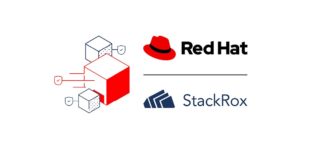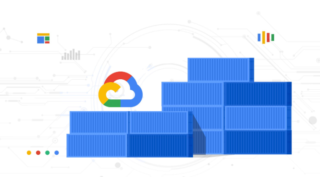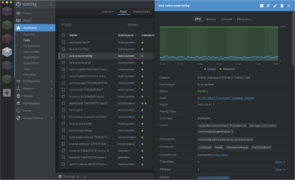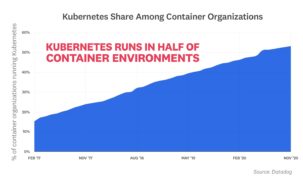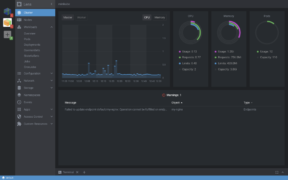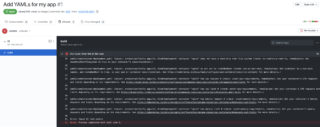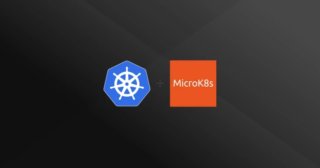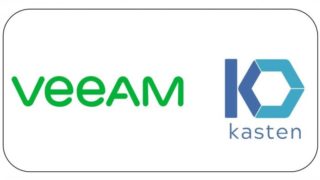Topic: kubernetes
Rapid7 acquires Kubernetes security provider Alcide
Rapid7 acquired the Kubernetes provider Alcide to help its customers rapidly adopt and secure cloud environments. Alcide provides Kubernetes security fully integrated into the DevOps lifecycle and processes so that business applications can be rapidly deployed while also protecting cloud environments from malicious attacks, according to Brian Johnson, the SVP of Cloud Security Practice at … continue reading
Red Hat to acquire Kubernetes and container security company StackRox
Red Hat has entered into an agreement to acquire StackRox for its container and Kubernetes-native security capabilities. According to Red Hat, bringing StackRox to its container application platform OpenShift will help users build, deploy and securely run apps across the hybrid cloud from a single platform. In addition, Red Hat plans to use StackRox to … continue reading
Google donates $3 million in cloud credits to CNCF to support Kubernetes
Google Cloud is continuing to help fund the Kubernetes project, which it initially created, by donating $3 million in cloud computing credits to the Cloud Native Computing Foundation (CNCF), the organization that currently maintains the project. This grant is a continuation of the company’s behavior since 2018, when it started its commitment of investing $3 … continue reading
ITOps Times Open-Source Project of the Week: Lens
This week’s highlighted open-source project is Lens, which is an IDE for Kubernetes. It can be used to handle operations, monitoring, development, and debugging in Kubernetes environments. “Lens provides the full situational awareness for everything that runs in Kubernetes. It’s lowering the barrier of entry for people just getting started and radically improving productivity for … continue reading
Kubernetes 1.20 now available
The third Kubernetes release of the year, Kubernetes 1.20, is now available. In this release, 11 enhancements moved to stable, 15 moved to beta, and 16 are entering alpha. According to the release team, this is one of the most feature-dense Kubernetes releases in a while. “What you can takeaway from this is that Kubernetes’ … continue reading
Report: Kubernetes running in over half of container environments
Kubernetes now runs over half of container environments. That is according to a new report from Datadog, which revealed that Kubernetes growth has doubled since 2017, and that it is continuing to grow steadily. Datadog analyzed 1.5 billion containers in use by tens of thousands of its customers to get a sense for how image … continue reading
Mirantis Lens adds extension API to integrate with any Kubernetes component, toolkit or service
The open cloud company behind the popular Lens Kubernetes IDE project, Mirantis, announced a new Extensions API that enables the rapid development of extensions for seamless integration with any Kubernetes-integrated component, toolkit, or service. “The Extension API and Extensions made in collaboration with many popular CNCF projects, opens up the world to Kubernetes developers greatly … continue reading
ITOps Times Open-Source Project of the Week: KubeLinter
StackRox has released a new open-source static analysis tool for identifying misconfigurations in Kubernetes deployments. KubeLinter checks YAML files and Helm charts and validates whether they have been configured using security best practices. StackRox recently conducted a study that found human error as a top cause for Kubernetes security incidents, with misconfigurations contributing to 67% … continue reading
Canonical’s MicroK8s now support high availability clustering
Canonical has announced MicroK8s now supports autonomous high availability (HA) clustering. This gives production workloads in cloud and server deployments more resilience. According to Canonical, high availability is achieved once three or more nodes are clusters and the data store migrates automatically between nodes. Canonical hopes that the increased resilience of HA MicroK8s will benefit … continue reading
ITOps Times Open-Source Project of the Week: Shipa Deployment Engine
Shipa recently open-sourced its deployment engine, which was originally designed to help developers deploy and manage cloud-native applications across multiple environments. The company said it will work with the Cloud Native Computing Foundation (CNCF) as the deployment engine’s roadmap evolves in the future. Shipa’s application-centric deployment engine bridges the gap between continuous integration tools and … continue reading
Rancher 2.5 enables GitOps at scale
The latest release of Rancher is now available. Rancher 2.5 introduces a new installation experience, GitOps at scale for edge clusters, full life cycle management of EKS cluster, and a new security hardened Kubernetes distribution for government customers. “Exploding on-premise, public cloud and edge Kubernetes use cases are creating massive container sprawl,” said Sheng Liang, … continue reading
Veeam acquires Kubernetes backup and disaster recovery company Kasten
The backup solution provider for cloud data management has announced it is acquiring Kasten for approximately $150 million. Kasten is a provider of Kubernetes backup and disaster recovery solutions. Veeam hopes the acquisition will help strengthen its data protection services, and help businesses with future-ready architectures. The news comes after Veeam and Kasten’s recent partnership … continue reading


